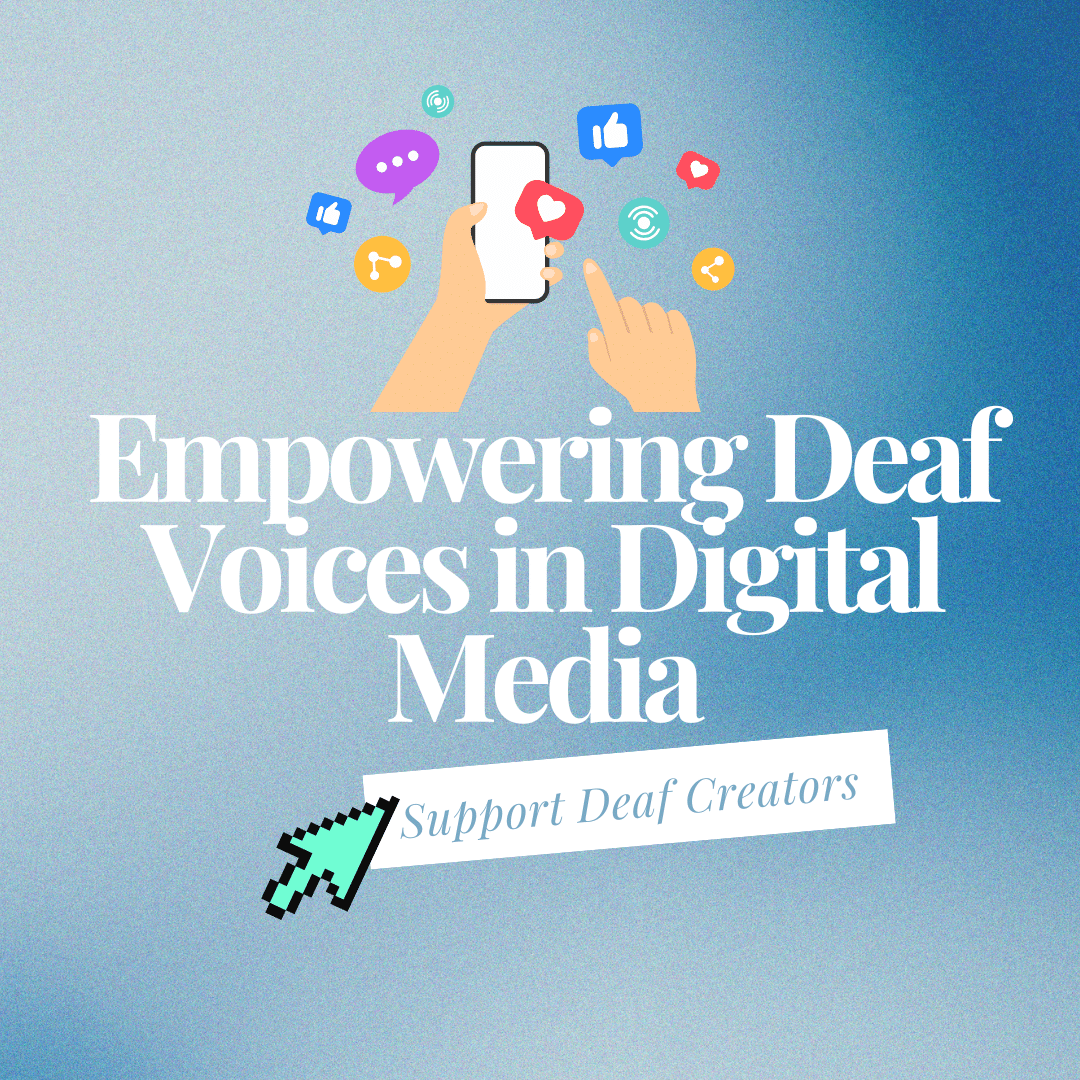
How to Become a Certified American Sign Language Interpreter
- by Katelyn Cheng
- 16 Comments

Many people are inspired by American Sign Language (ASL) from signing in movies, in public, or by a d/Deaf/Hoh friend or d/Deaf/Hoh family member. This inspiration pushes them to want to learn ASL and for some people to choose ASL interpreter as their career choice. Becoming an American Sign Language Interpreter is a popular career choice for students of the profession.
Mandy Slater who is an ASL interpreter stated in her interview:
“It is a service for them. Don’t use this profession for personal gain, yes it is rewarding at times, but do it for the right reasons. Make sure the Deaf community knows your heart is in the right place.”
Read more below and click here to watch Interview with Mandy Slater.
Being an ASL interpreter is not just an “occupation”, it opens the door to another whole new world of another community and culture known as Deaf community and Deaf culture. Many ASL interpreters will attend Deaf socials and have d/Deaf/Hoh friends. It is important that ASL interpreters are deeply knowledgable about the Deaf community and Deaf culture. The books and learning in class can only teach someone to an extend. A lot of the social interactions, slangs, expressions are mainly picked up from socializing with other d/Deaf/Hoh people.
Many people who wants to become an ASL interpreter wonder how they can get started. Below are useful key information and an overview on what you need to know to get you started on your journey to becoming an ASL Interpreter.
1) Education
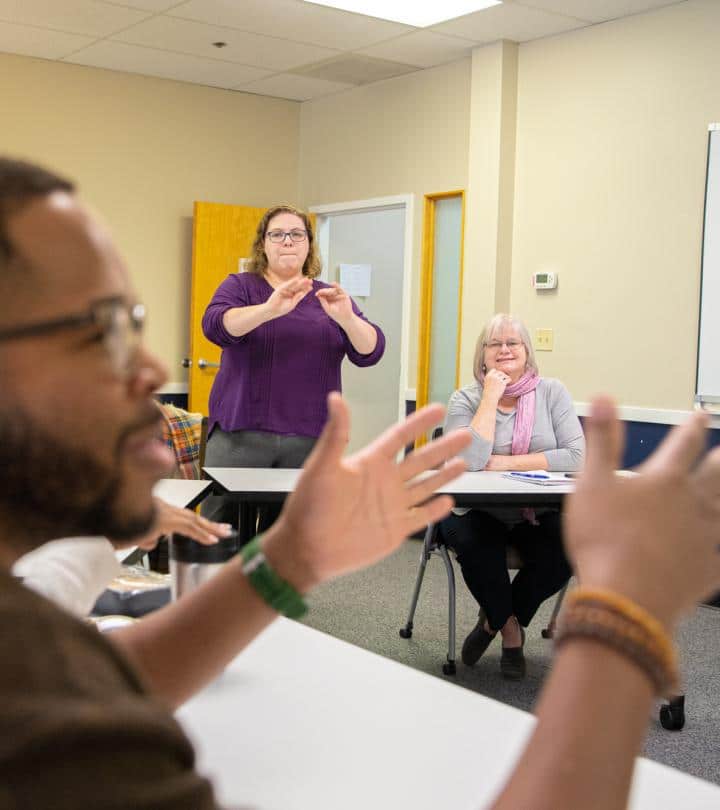
The educational requirements for certification from the Registry of Interpreters for the Deaf are currently changing. One of the requirements to become fully certified is to have a bachelor’s degree—it can be in any field—in order to take the National Interpreter Certification (NIC) exam. IEP which stands for Interpreting Educational Program is a 2 year program that is separate from the university. An example of an university that includes IEP in the four years enrollment is California State University of Northridge (CSUN). It depends on the person when he or she is ready to take the NIC exam and become certified. Some can take the NIC exam around the time of graduation or others will need at least 3-4 years of experience before taking the exam.
Many colleges and universities offer ASL interpreter training programs. You can find interpreter training program listings on the RID website: RID’s database of interpreter education programs.
2) Certification

Certification is now required for most interpreting positions. There is a National Interpreter Certification (NIC) test that is given jointly by the National Association of the Deaf (NAD) and the Registry of Interpreters for the Deaf (RID). There are two exams: Knowledge Exam and Performance Exam, which includes a written test, an interview, and a performance test. To learn more about the certification process, visit the Certification section of the RID website.
Your state may also require other certification on top of the national certification in order to be an interpreter for the deaf, and depending on the setting in which you plan to interpret, there may be additional trainings and other certifications required as well.
3) Types of Interpreters

As an interpreter for the deaf, you can work either as a staff employee, a freelance independent contractor, or an agency interpreter.
As a staff employee, your job would be more stable, predictable, and often include benefits. However, you would also have less flexibility in picking your assignments and your range of experience would be limited to what the organization does.
As a freelance interpreter for the deaf, you get to contract with many different agencies. These can include private agencies, public agencies, schools, hospitals, courts, businesses, and even directly with clients. However, unlike a staff position, you wouldn’t get benefits such as health insurance or vacation pay. You also have to deal with extra paperwork like preparing quarterly tax estimates and obtaining business licenses and insurance. Also, freelance interpreters normally don’t receive a full forty hours of work per week.
Agency interpreters are interpreters who are contracted by interpreting agencies. These agencies are contacted by clients and the agency sends out the most qualified interpreter for that job.
There are different types of interpreting, which can range from interpreting in school, court, medical (doctor’s appointments), amusement parks, VRS, general community services, etc.
4) Salary

In California, an average salary is $30 an hour or $62,880 annually. Your salary will depend on your geographical location (rural areas tend to pay less), education, credentials, amount of experience, and what type of interpreter you are (such as staff, freelance, or agency).
5) Resources
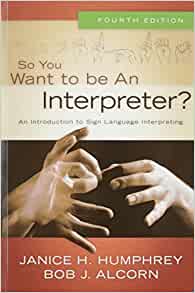
If you plan on becoming an ASL interpreter, we also highly recommend all of the books listed on this page below. You will find a lot more information about interpreting in these books that you will on the internet.
Sign Language Interpreting Code of Ethics
The sign language interpreting Code of Ethics is very important for all interpreters to follow.
All RID certified interpreters are required to follow the RID Code of Ethics. The Code of Ethics requires that interpreters behave in a manner appropriate to their position. For example, interpreters may not change the message they are interpreting, all assignment-related information must remain confidential, and no personal opinions or advice can be added while interpreting.
The seven tenets of the RID Code of Ethics are listed below:
- Interpreters adhere to standards of confidential communication.
- Interpreters possess the professional skills and knowledge required for the specific interpreting situation.
- Interpreters conduct themselves in a manner appropriate to the specific interpreting situation.
- Interpreters demonstrate respect for consumers.
- Interpreters demonstrate respect for colleagues, interns, and students of the profession.
- Interpreters maintain Ethical business practices.
- Interpreters engage in professional development.
Here is the official NAD-RID Code of Professional Conduct.
ASL Interpreter Book Recommendations
If you are or plan to be interpreting, you should have these books!
We have searched for the best books for ASL interpreters. We have checked them out and read their reviews. These are all wonderful resources that we highly recommend!
Please note that when you choose to purchase through the external links on this website (in many but not all cases) we will receive a referral commission. However, this commission does not influence the information we provide in this site. We always give honest opinions and reviews to share our findings, beliefs, and/or experiences. You can view our full disclosure on this page.
Here is more details about becoming an ASL interpreter in Don’t Just “Sign”… Communicate!: A Student’s Guide to ASL and the Deaf Community.
Interview with Mandy
 Mandy Slater an ASL interpreter who works for Sorenson shares her journey of becoming certified and her experience working as an interpreter:
Mandy Slater an ASL interpreter who works for Sorenson shares her journey of becoming certified and her experience working as an interpreter:
My name is Mandy,
I have been involved in the d/Deaf/Hoh community since I was three years old. Growing up my best friend was Deaf. Having that foundation in ASL really set the ball rolling to become an interpreter. I completed ASL one to four at the Santa Rosa Junior College during high school. A few years later I attended Berkeley City College to continue my general education units and take their ASL courses (classifiers, fingerspelling, deaf history and culture etc)
Fall of 2018 I transferred to California State University Northridge where I completed the Interpreter Education Program and received my B.A. Deaf Studies: ASL/English Interpreting May of 2020 amidst the pandemic. Since then I worked as a medical interpreter in the Los Angeles area for over a year, and am currently a community interpreter through Sorenson Communications in the San Francisco Bay Area.

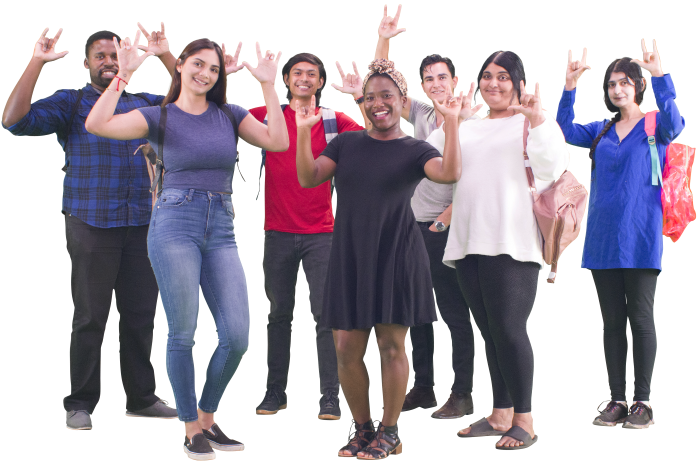
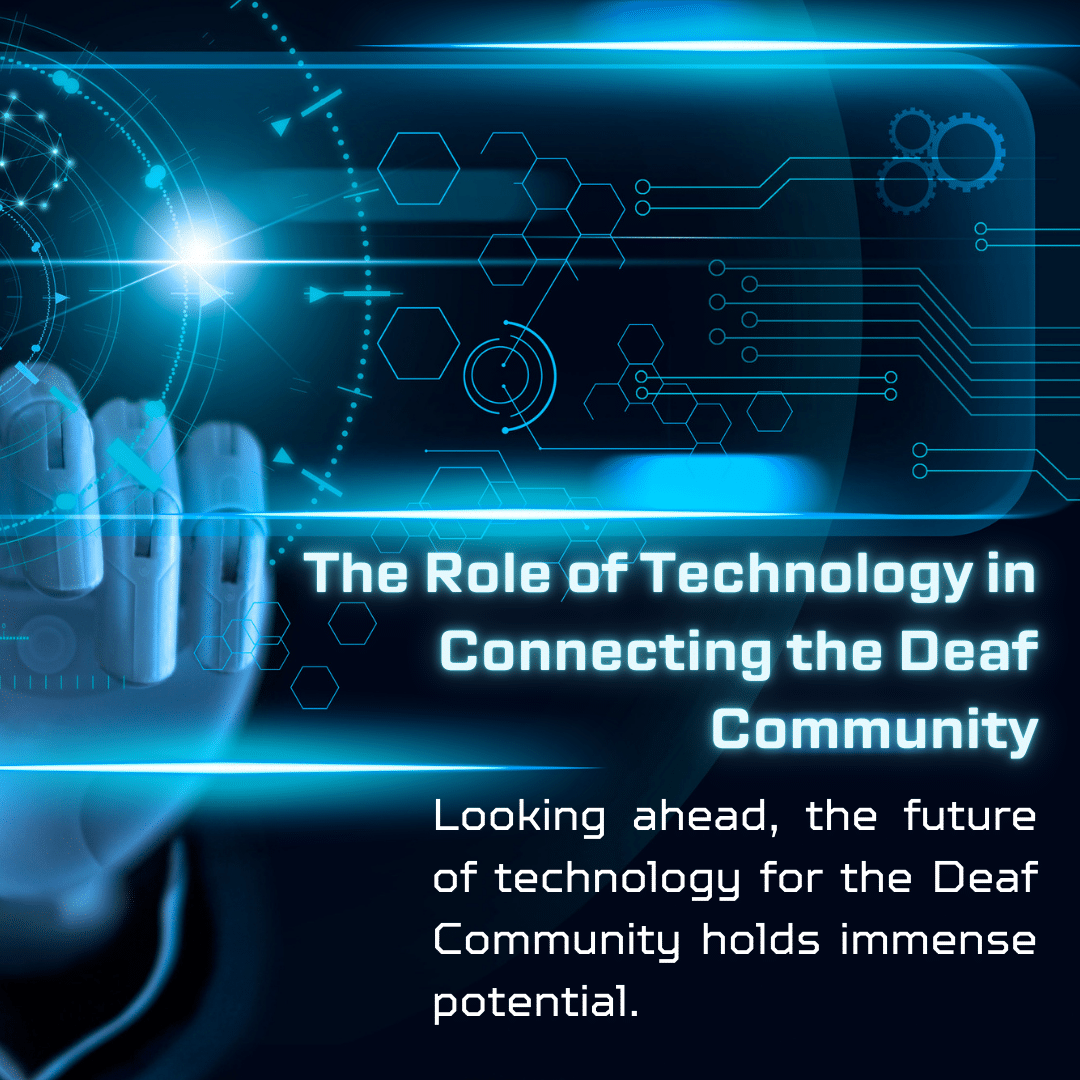
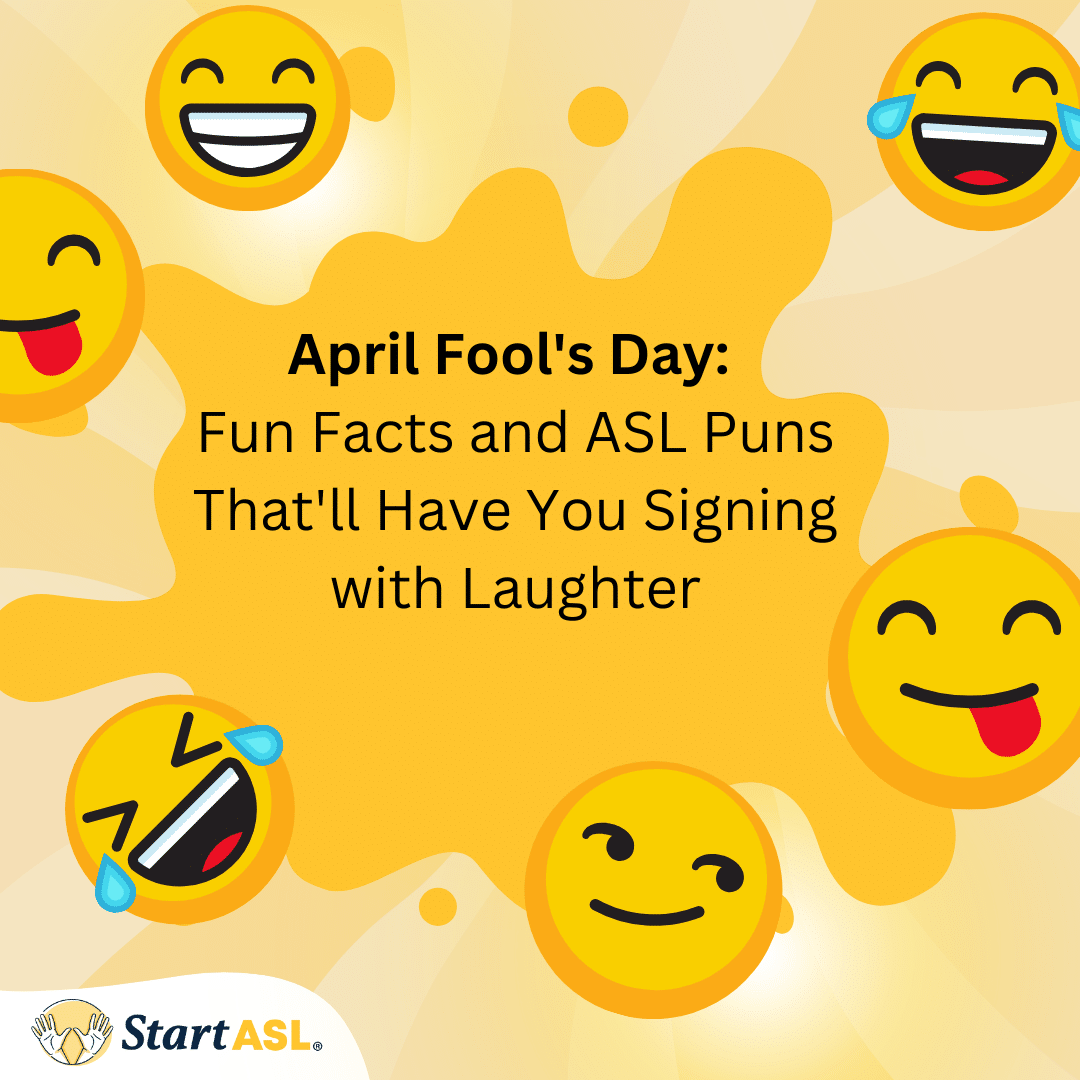
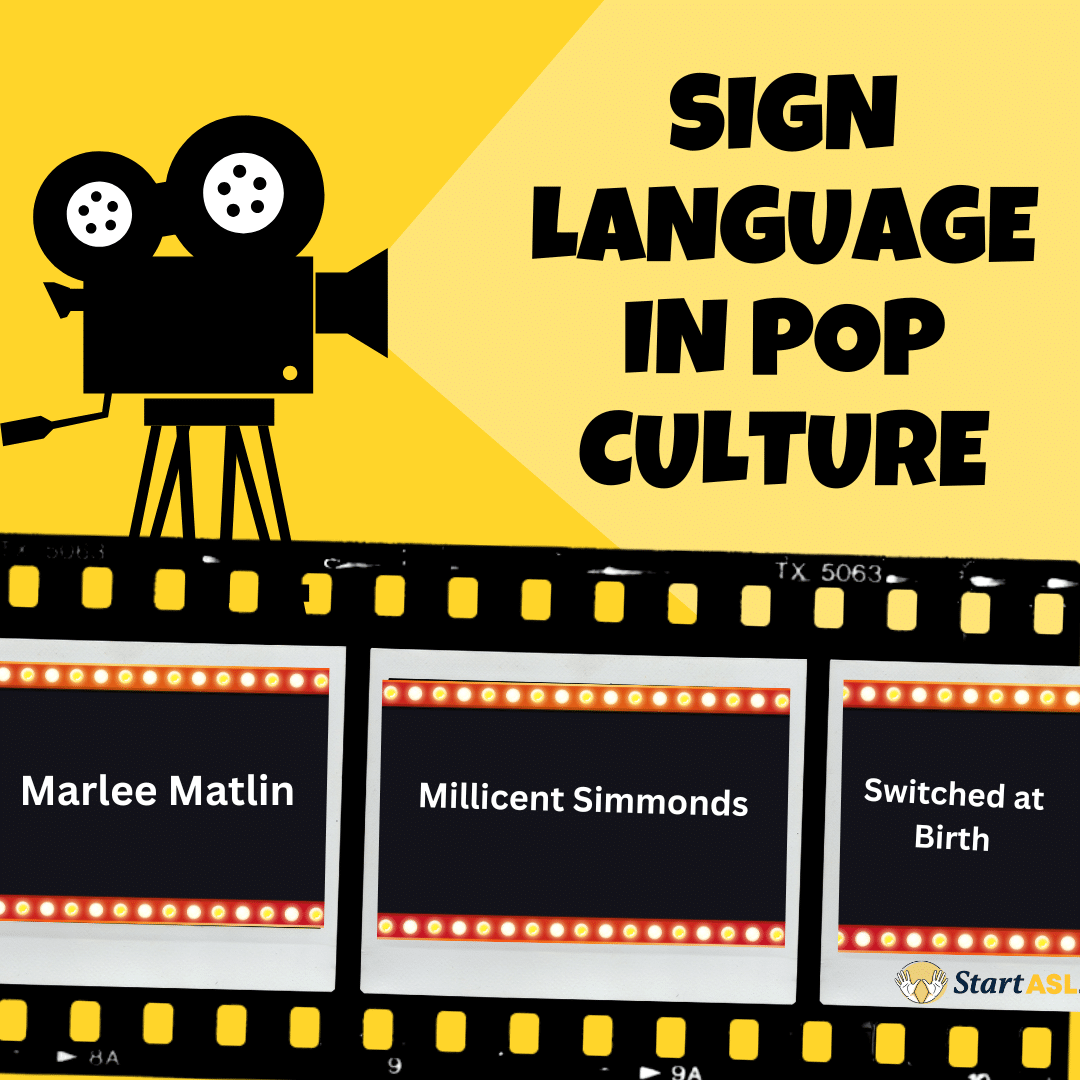
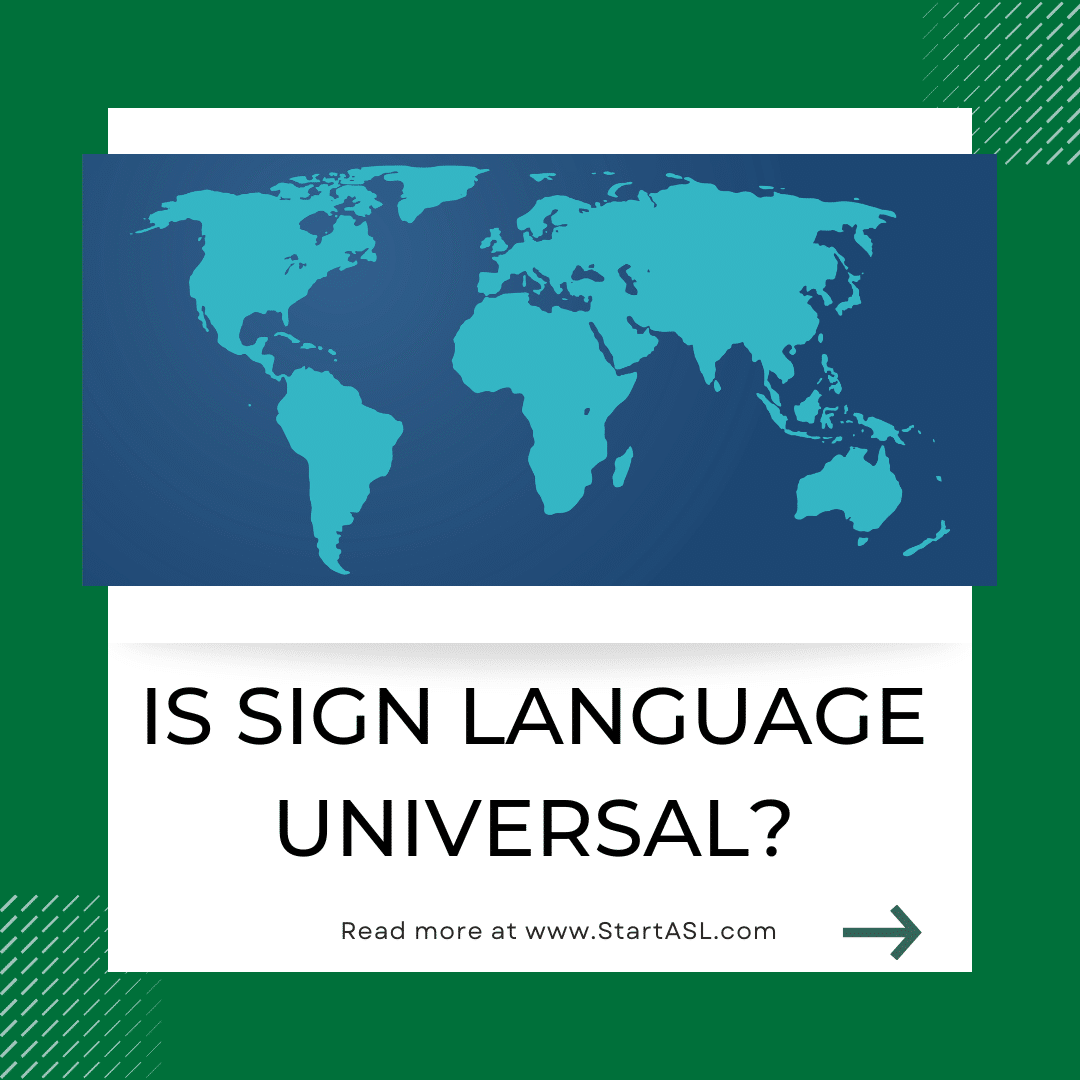
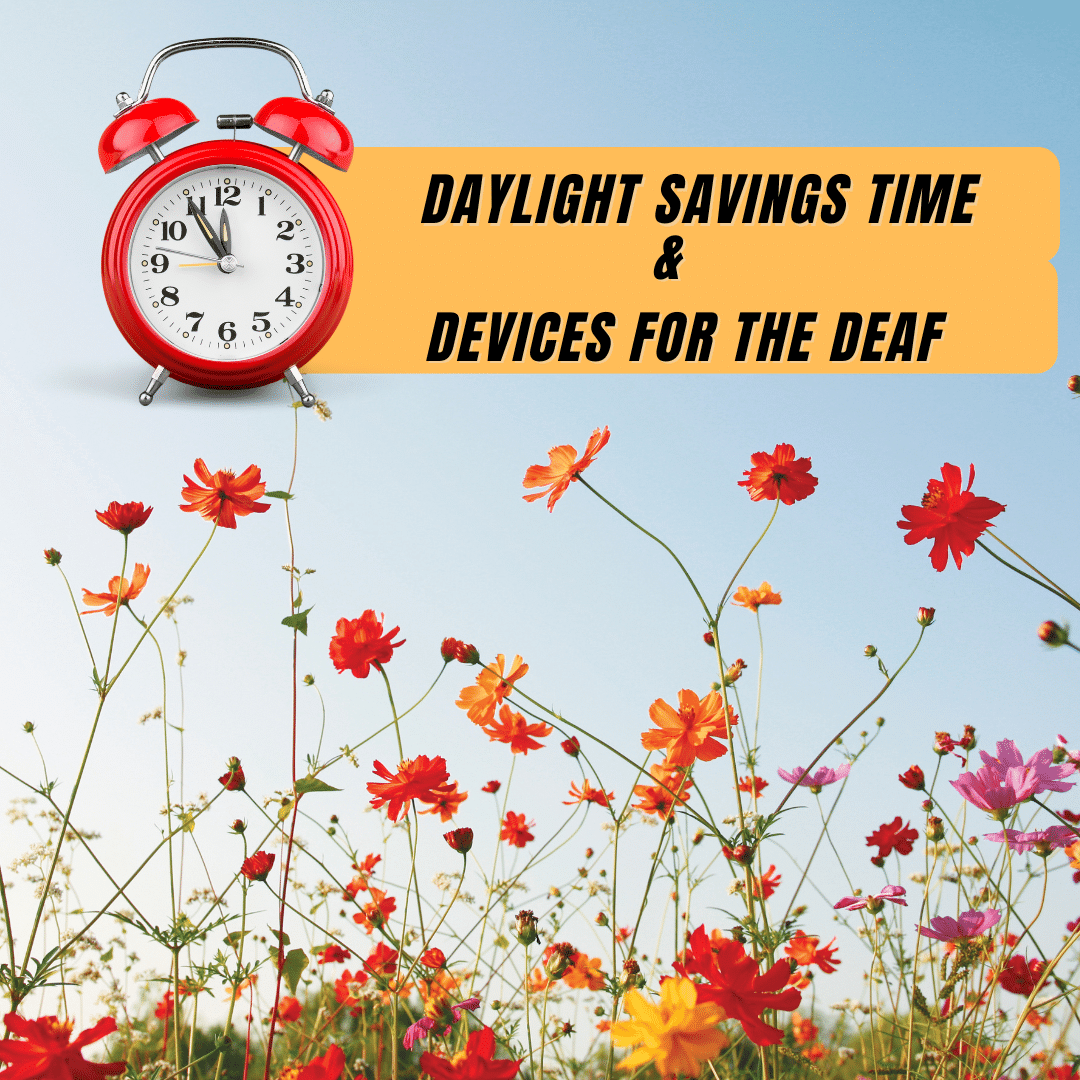



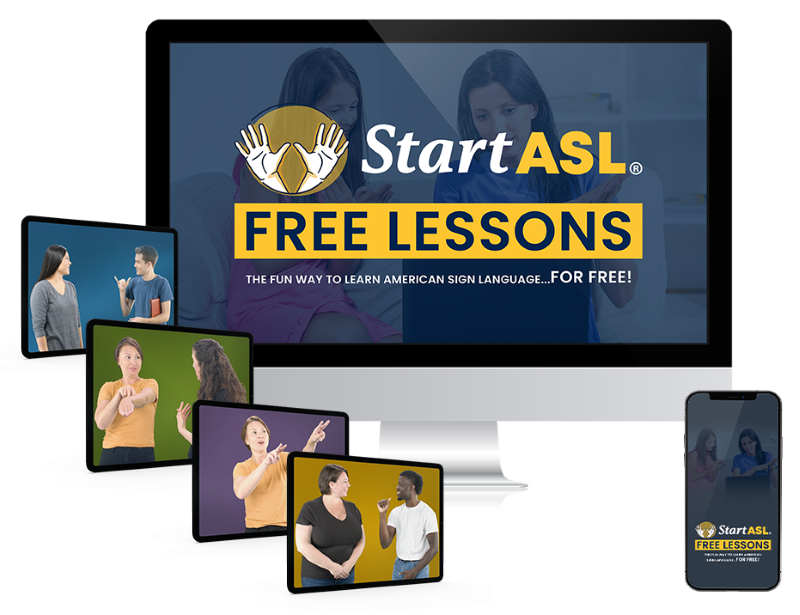
16 Responses
Hi, I am a college student who is interested in being an ASL interpretor, but I do not want to stay in school. My question is: do I really need a bachelors to become an interpretor? Can I learn from a program online then take the BEI exam when I am ready? Thank you.
Please reach out at my email: abbyrleon@gmail.com
I have known ASL for a long time but want to be certified. As a working adult I am searching for a program that is completely online. I would also want to get some scholarships because I’m not exactly wealthy. I really want to do this. I’m just not sure how to start. If Anybody can help me. I would really appreciate it.
Hi! I have been learning Sign Language for about three years now, and I’m obsessed with it. I have classes to where I teach young children the basics of sign language, such as numbers, colors, letters, some basic signs, and soon The Lord’s Prayer. – I want to take my hobby a step further, and become certified, but I fear my age will get in the way with it. – Dear Mandy, could you please text me, and help me? If you could text, that would help me a lot, as I check my messages much more often than email. Thanks!
Paige Woods
225-220-4650
Would like to find out if I ready for a provisional asl certificate. I am a coda and have been around deaf and hard of hearing all my life. As a adult became interested in really perfecting the ASL skills needed to enter the interpreting profession. I enrolled in true biz and other college preparation course throughout my adult life. How can I know if I ready to be tested. Some deaf people are easy to understand while others are not.
So many people with questions on this post. Sad that no one has replied! Once again, the heating world wants to aid but no one gives clear and good communication. Hearing are willing to interpret, but we need answers to our questions so we know how we can do this. 😔
I am currently interpreting “off the cuff” at a school for a deaf individual i only studied it over the summer I’m learning but how can I get better quickly so I can help this individual better. I’m a para in a classroom setting and want to become certified.
I have been trying to look for a program near me to get a sign language interpreter certification. I haven’t found any. I have been interested for about 15 years and I’m getting older and I hate working pay check to pay check. I would like to have my certification in about 2 years so that I can buy a house etc.
Good afternoon. I had a question as to where can you study before taking the exam and what are the requirements for taking the national rid exam and or NIC exam? What books can I read to learn more about deaf history/ culture? Thanks in advance.
My son has signed up in high school for the ASL program. does this help him on the path to certification? if so how?
I teach Japanese in a high school in Massachusetts. It would really depend on the high school’s program and where he goes to college. Generally, learning the language in HS is going to give him a boost on his way to fluency. There is no AP test for college credit, so he may still need to complete a certain number of credit hours for his degree.
Hello, Wayne! Yes, this will help your son. The more experience he has in Sign Language, the more likely people will be to certify him. Hope this helped!
my question is how do I get a certificate in ASL , I am hearing and I grew up signing with family I have been their ears for a long time. I am working in mental health and we have deaf clients come in I can get them started with some paperwork, but when it comes to sessions I can not attend because I am not certified . Anyway I get certified with out having to take schooling . thank you
I’m reaching out to Deaf World.
I’m from Josephine Country in Grants Pass Oregon USA.
My name is David DeHarty.
I’m 29 year old.
I’m hearing.
I’ve been signing for 10 years in American Sign Language ASL self learning Individual.
I’m considering to work in the department of interpreting.
A deaf individual recommended supported specialist in the deaf community.
I’m want work Sorenson Company Deaf Services. I would like them to hook up my TV to do services with a deaf.
I just want to communicate to the deaf people one-on-one.
Right now I need to improve on my spelling ability. Learn how to speak what I read with the hand fingers.
My dream job is to take care of children in daycare.
I think Glide app good to communicate Video Chat clips.
I’m Bisexual, Demisexual, Polyamorous Gender Nonconforming Man, He/Him/His. Part Deaf Community Identity.
I’m Single at moment.
I’m Austim Disability Adult.
Side note
I so want connect Blind People & Community.
I live in Grants Pass Oregon currently.
I meet Deaf Community in Fresno California.
My dream home is San Diego California.
Can you help me?
Thank you
Best way communicate to
(541)291-2258, Text me
Hello, Where do I study online before taking exam? Thank you
Can a Hoh person who uses aids become an ASL interpreter?
So I’m a hearing person (take everything I say with a grain of salt), but I just watched a religious broadcast in ASL and one of the interpreters did have a hearing aid. It might be possible, but once again, I’m a hearing person who is in an ASL 1 course.